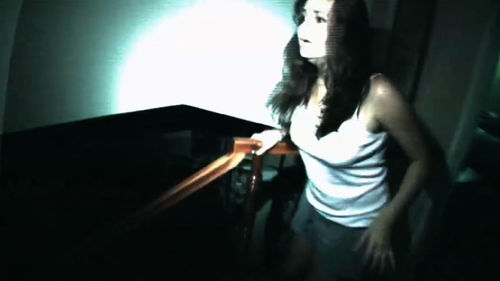Review: The Men Who Stare At Goats

It was disappointing to see this movie so close to Paranormal Activity, as they're both equally forgettable. This is more of a Rush Hour 2- "I can barely remember what happened in that movie!"- kind of forgettable than a Men in Black 2- "Wish I had a neuralizer to wipe my mind!" kind of forgettable but that's forgettable nonetheless. Why am I comparing this movie to two of the most all-time mediocre sequels? Because The Men Who Stare at Goats is basically a sequel to all of your favorite movies. It features so many redundant situations, conversations and experiences that you'll feel like you're watching a mixtape of better movies. Does that make it bad? Not necessarily. But when you exit the theater after seeing this picture I guarantee the only thing you'll be thinking about is something else.
The basic premise of Goats is that Ewan MacGregor is an American journalist (already shaky casting here) trying to prove himself as a man of worth. While doing puff pieces on the supernatural he stumbles across evidence of a secret government organization that attempted to use psychic abilities for warfare purposes. Ewan meets George Clooney, a quirky former-member of the psychic warfare platoon and they head into the heart of Iraq for a moderately enjoyable flashback-filled road trip. As mentioned above, there's nothing insulting or patronizing about the premise alone. It's frankly kind of amazing since a majority of the movie is based off of true events. That proves to be the movie's greatest comedic asset, as well as its downfall. Everything in the movie is so logically explained that even its broadest comedic strokes seem plausible. And with the film's basis firmly set in reality, it's hard to imagine any sort of escalation plot-wise that could result in someone actually using psychic powers to down a foe, at least not without some practical explanation too. And that's the problem. With a cast this impressive it's a shame that we never get to see the psychic squad working together to take down a common foe. Even if the movie ditched its supposed basis in reality for a trip to Tropic Thunder-land, it would have been a welcome surprise to see someone do something fun or unpredictable during the course of the story. Instead we watch grown men behave like children for 90 minutes with no other conclusion to be drawn than "Gee, that looks fun."
Is it really so surprising to see George Clooney as a quirky soldier on a seemingly impossible mission? If that sounds like a cross between his roles in O Brother Where Art Thou and Three Kings (or even laugh-out-loud comedy riot Syriana!) that's because it is. You'll be seeing a lot of that trademark Clooney charm but nothing new. As for Ewan, he's so busy keeping his accent in check he barely has time to develop a character. Most disturbingly, the nickname for the psychic platoon is the "Jedi" so expect a lot of uncomfortable moments where people stare directly into MacGregor's eyes and say, "You're a Jedi!" Yeah, because that was so entertaining the last three times he did it. Yeesh. If only the pointless redundancy ended there! Get ready for Kevin Spacey's breakthrough performance as a snarky and self-serving villain, not to mention Jeff Bridges' unprecedented work as a free-spirited stoner. This is only time you'll hear me say this, but I would have rather been watching K-PAX. Honest to God, K-PAX.
It's not that Goats is entirely poorly cast. Any director should be commended for wrangling together this much talent in a passably entertaining film. The problem is that we've seen all these choices play out before in much better movies. The Men Who Stare at Goats is so shamelessly derivative of popular films from the past two decades that it fails to distance itself enough to make itself distinct. Watching Jeff Bridges' LSD-fueled rants about psychic energy just made me want to watch Big Lebowski. Watching Ewan MacGregor generically deliver line after line in a phony American accent just made me want to watch Trainspotting or any other movie where he didn't suck so much. And if you're looking for a movie devoid of female eye candy, this is the one to see. Aside from a few brief shots of the redhead from Lost, there are no female characters in this picture. Whoops.
I hate the fact that it's so damn easy to rag on Goats, because at the end of the day it is hardly a terrible movie. It's fun and light and the kind of movie I could easily recommend to somebody's mentally enfeebled grandparents. But the reason it's so much fun to mock is that Men Who Stare at Goats just barely misses the mark. It's like the one note in a symphony played a half-step off-pitch that spoils everything. It's not that the movie is a travesty. It's that the movie isn't a travesty. The movie isn't anything. The only commendation I can share is for the director. The movie is competently shot and edited (which is definitely more of a challenge than most people give it credit) and it was never distractingly bad visually. But that's a microcosm of the whole enterprise: Passable entertainment, complete with competent camerawork and decent performances. Rarely have I seen a movie so inoffensive yet so ultimately unlikable. In a day and age where movies cost upwards of ten dollars, this is one you can surely skip. Instead, I recommend taking a second look at your DVD collection. Chances are you've not only seen The Men Who Stare at Goats before, you've also seen it done well.
Grade: C








